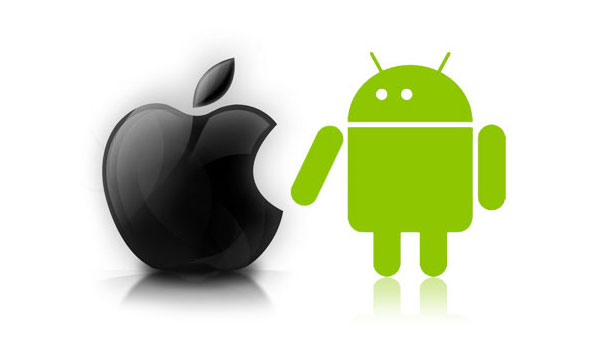There might be a patent war brewing again between Apple and Google, as a new patent has been published by the US Patent and Trademark Office which details a ‘smart lock’ system designed for the iPhone, which is a lot like one which Google detailed at Google I/O.
Both systems are designed to change the way phones allow secure internet access based on location.
Descriptions of the two systems differ slightly. Google’s system, designed for Android L, says it will detect whether familiar Android devices are in the vicinity, then the usual phone unlock screen will not be shown. If you’re at home, at the office, or any other designated ‘safe zone’, you may not need to use your lock screen.
Additionally, automatically connecting to a friendly Bluetooth device, such as your Android Wear wearable, can also serve as a ‘key’ to avoid using that unlock code.
The description of the Apple device reads “Because some locations may be inherently more secure, such as a user’s home or office, these locations may be considered ‘safe’ and require less stringent security,” The patent reads.
Information on Apple’s system says that if the system detects that the user is at home, it will relax the security conditions for connecting to a wi-fi network or unlocking the phone, even skipping the need to enter a passcode entirely.
On the flip side, if the phone is in a location it’s never been to before, such as the town next door or your evil neighbour’s house, security will be heightened, possibly even utilising the Touch ID sensor on the recent line of iPhones and the upcoming iPad Air 2.
However, with regard to who actually came up with the system opinions are mixed. On one hand, Google did announce the service at their I/O conference, a good while before this Apple patent came to light. Of course, the Apple patent may have been filed before Google’s announcement then may have spent time in administrative limbo, hence the delay.
Although the two systems do detail different functions, the fact that they both (in layman’s terms) use GPS and location data to change security measures, does mean that potentially either company could launch legal proceedings in order to put a spanner in the other’s works. Whether this will happen remains to be seen.
Source: US Patent and Trademark Office


